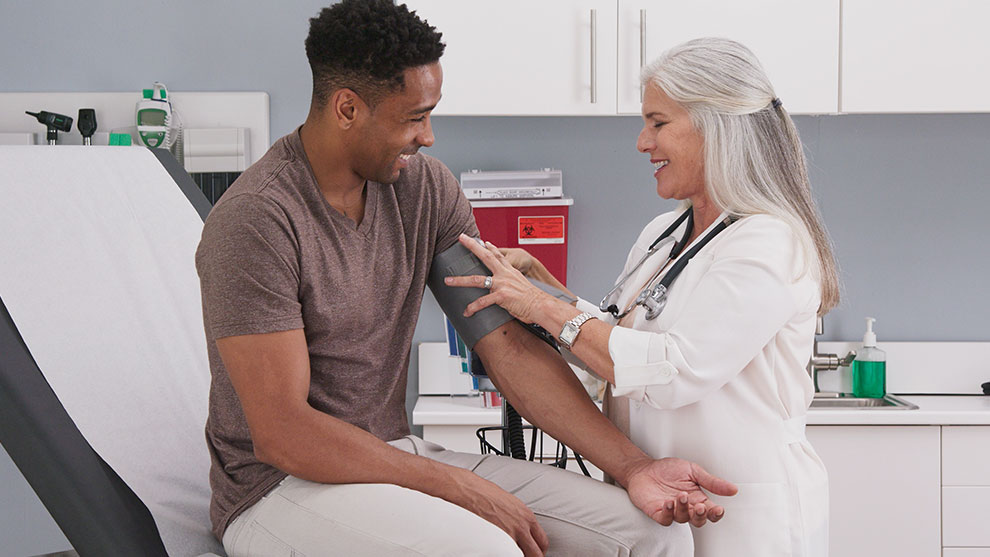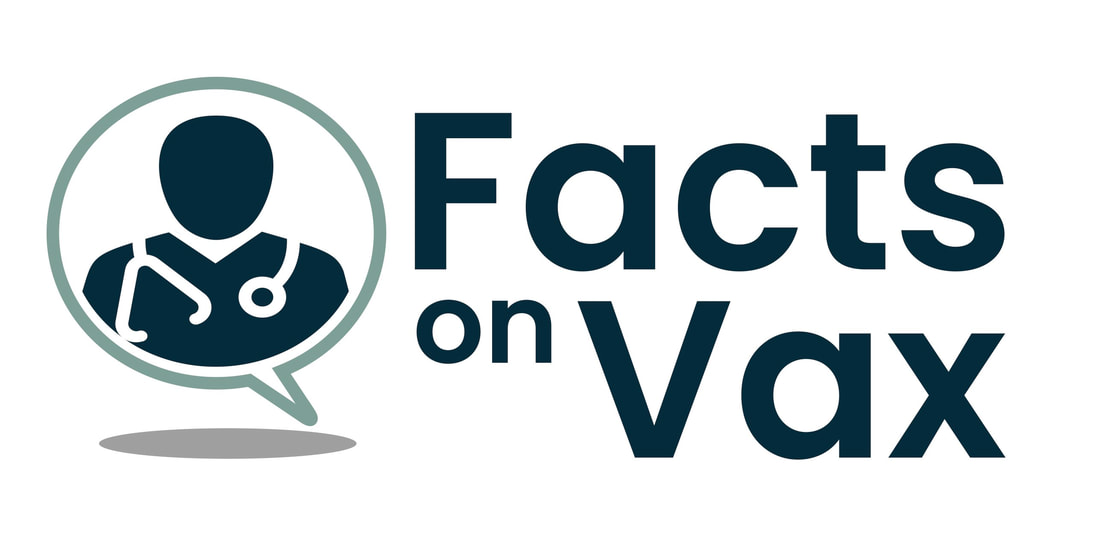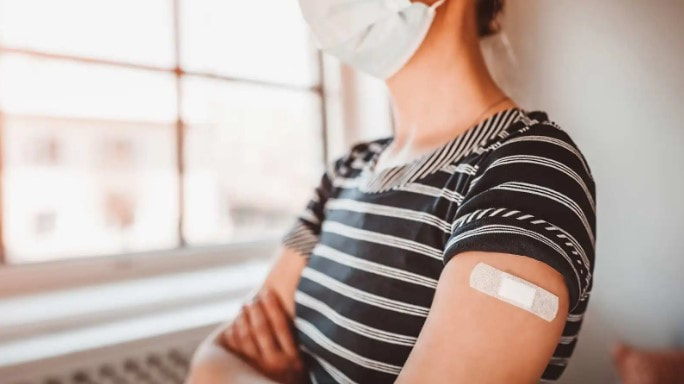Facts on Vax
Resources to help you discuss the importance of COVID-19 prevention
Addressing COVID-19 vaccine hesitancy with your patients



Facts on Vax is a partnership of osteopathic organizations committed to lowering the rates of COVID-19 through prevention. The American Osteopathic Association is collaborating in partnership with the Florida Osteopathic Medical Association, Michigan Osteopathic Association, Ohio Osteopathic Association, Oklahoma Osteopathic Association and Pennsylvania Osteopathic Medical Association on an initiative to prepare osteopathic physicians to discuss the importance of COVID-19 prevention, including vaccinations with patients. This web page will be updated with current information you can provide your patients to help lower the rates of COVID-19 in your community.
Although vaccines are effective and have helped slow the spread of COVID-19 during the course of the pandemic, many individuals are hesitant to get vaccinated. Primary care physicians are regarded by their patients and the public as one of the trusted sources of health information. Vaccine-hesitant patients are more likely to choose to be vaccinated if they learn about the benefits and receive accurate information from a trusted physician.
Osteopathic physicians and their practice teams play a key role in preventing COVID-19 infections among patients and communities. Some of the ways you can make a difference include:
- Listening without judgement to your patient’s concerns.
- Provide information on the risks to the patient, their family and the community of not obtaining a COVID-19 vaccine.
- Answering patient’s questions and provide additional educational resources.
Information for vaccine-hesitant patients
Osteopathic physicians and their healthcare teams must be ready to discuss concerns with patients who may be hesitant about the vaccine. The educational information below is provided by the Centers for Disease Control and Prevention.
Vaccines work
- Getting vaccinated against COVID-19 can lower your risk of getting and spreading the virus that causes COVID-19.
- Vaccines can help prevent serious illness and death.
- If you already had COVID-19, you should still get a COVID-19 vaccine for added protection.
- Getting a COVID-19 vaccination is a safer way to build protection than getting sick with COVID-19.
- COVID vaccination helps protect you by creating an antibody response without you having to experience sickness.
- Getting sick with COVID-19 can cause severe illness or death, even in children, and we can’t reliably predict who will have mild or severe illness.
- You may have long-term health issues after COVID-19 infection. Even people who do not have symptoms when they are initially infected can have these ongoing health problems.
- People who are sick with COVID-19 may spread COVID-19 to others including friends and family who are not eligible for vaccination and people at increased risk for severe illness from COVID-19.
Vaccines are safe
- While COVID-19 vaccines were developed quickly, all steps have been taken to ensure their safety and effectiveness.
- Hundreds of millions of people in the United States have received COVID-19 vaccines under the most intensive safety monitoring program in U.S. history.
- A growing body of evidence shows that the benefits of COVID-19 vaccination outweigh the known and potential risks.
- Before recommending COVID-19 vaccines, including for children ages 5 years and older, scientists conducted clinical trials with thousands of adults and children and found no serious safety concerns. Learn more about the benefits of COVID-19 vaccination for children and teens.
Vaccines are effective
- COVID-19 vaccines are effective and can lower your risk of getting and spreading the virus that causes COVID-19. COVID-19 vaccines also help prevent serious illness and death in children and adults even if they do get COVID-19.
- Data suggest that COVID-19 vaccines become less effective at preventing infection or severe illness over time, especially for people ages 65 years and older. This is why booster shots are recommended for people ages 12 years and older who have completed their primary vaccination series. However, even as the vaccine’s ability to prevent infection decreases with time, COVID-19 vaccination continues to reduce the risk of hospitalization and death when people become infected with COVID-19.
- People who have certain medical conditions or who are taking medications that weaken their immune system may not be completely protected even if they completed the primary vaccination series. Some people who are moderately or severely immunocompromised should get an additional primary dose of COVID-19 vaccine and a booster shot.
- Viruses are constantly changing, including the virus that causes COVID-19. These changes occur over time and can lead to the emergence of variants that may have new characteristics. Vaccines continue to reduce a person’s risk of contracting the virus that causes COVID-19. COVID-19 vaccination is a more reliable way to build protection
- The level of protection people get from having COVID-19 (sometimes called natural immunity) may vary depending on how mild or severe their illness was, the time since their infection, and their age; and there is still not an antibody test available that can reliably determine if a person is protected from further infection.
- All COVID-19 vaccines currently available in the United States are effective at preventing COVID-19. Staying up to date with COVID-19 vaccination gives most people a high level of protection against COVID-19.
Additional resources
Training materials for physicians and practice staff:
- Talking with Patients about COVID-19 Vaccination
- Building Confidence in the COVID-19 Vaccine
- CDC Interactive COVID-19 Vaccine Conversations Module for Healthcare Professional
- COVID-19 Vaccine Misconceptions
- CDC COVID-19 Vaccine Training Modules
- Facts about COVID-19 Vaccines
- Frequently Asked Questions about COVID-19 Vaccination
- Safety of COVID-19 Vaccines
- COVID-19 Vaccines for Children and Teens
- WHO: Communicating with Patients on COVID-19 Vaccine
Patient education resources:
- Resources to Assist in Addressing COVID-19 Vaccine Hesitancy
- Where to Find a Location to Obtain a COVID-19 Vaccine
- COVID-19 Posters
- This is Our Shot
- COVID-19 Videos
